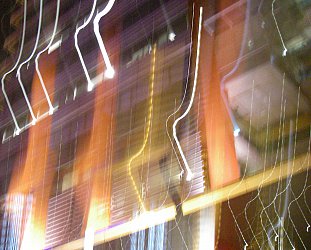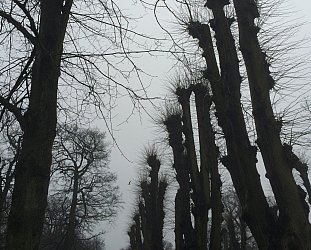Graham Reid | | 1 min read

This free-wheeling and sometimes melodically untethered 10th album by Iceland's uncommonly talented Björk is the final installment of a trilogy after the post-divorce mood of Vulnicura (2015) and the avant-garde escapism of Utopia (2017).
Musically the album catapults off past influences: choral passages, big band horns, orchestration, electronica, minimalism, strident hip-hop beats, crashing percussion, eerie instrumentals and more. Often a few of these within a single song.
Björk's voracious appetite for diverse genres erases boundaries between them. The result is disparate styles and sounds seep together through aural osmosis as she stakes out challenging musical territory and deploys that remarkable voice – strong, expressive, intimate, shouty – on lyrics ranging from cosmic feminism to pagan imagery.
The centre-piece miniature Fagurt Er Í Fjörðum is an 18th century Icelandic folk song delving into the mysticism of the landscape which, while beautiful in summer, kills in winter.
It's emblematic of the emotional and shamanistic dichotomy Björk explores here after being grounded back home during Covid and refreshing her creative spirit, but also dealing with the death of her mother with whom she'd had a difficult relationship.
But throughout Björk moves beyond her past. “I heed the call to step out of victimhood . . . it erased my shadow” on Victimhood and “When I was a girl I felt love was a building I marched towards, but deadly demonic divorces demolished the ideal. Now with your romantic intelligence, sensual tenderness, we dissolve old habits” on Ovule.
Then later when the mood turns, “I let myself freefall into your arms, into the shape of the love we created” on Freefall.
The album title is a feminine Latin term for burrowing animals. There's certainly emotional subterraneanism here. But beautiful resolution comes with Her Mother's House featuring warm cor anglais and a second vocal by her 19-year old daughter Isadora: “The more I love you (the more you love me), the better you will survive (the better I will survive) . . . when a mother's house has a room for each child it's only describing the interior of her heart”.
Björk's album are rarely easy but the operatic dimensions of Fossora's absorbing art music is a journey toward hope and affirmation.
.
You can hear and buy this album at bandcamp here.





post a comment